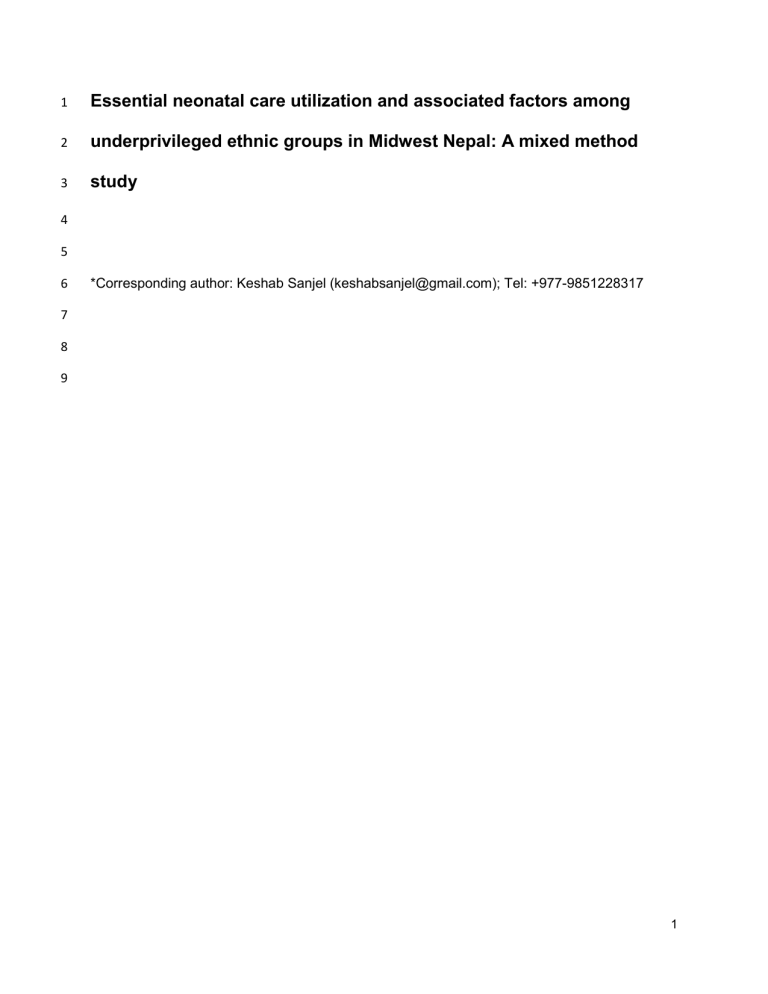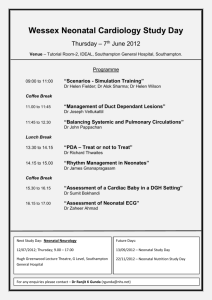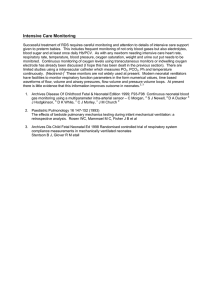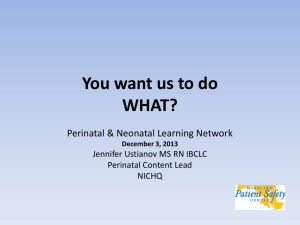Manuscript
advertisement

1 Essential neonatal care utilization and associated factors among 2 underprivileged ethnic groups in Midwest Nepal: A mixed method 3 study 4 5 6 *Corresponding author: Keshab Sanjel (keshabsanjel@gmail.com); Tel: +977-9851228317 7 8 9 1 10 Abstract 11 12 Background 13 Globally in 2017 neonatal death accounted for 46% of under-five deaths. Nepal is one of the 14 developing countries which have a high number of neonatal deaths. The rates are high among 15 poor socio-economic groups, marginalized, as well as people living in remote areas of Nepal. 16 This paper thus tries to examine the utilization pattern and maternal, household, and health 17 service factors affecting among underprivileged ethnic groups in Midwest Nepal. 18 19 Methods 20 A cross-sectional mixed methods study was conducted from September 2017 to April 2018 in 21 Bardiya district. Quantitative data were from a household survey of women who gave live births 22 within the last 12 months prior to data collection (n= 362). Ten key informant interviews with 23 purposively selected informants were conducted as well. The Logistic regression model was 24 used to determine the factors associated with essential neonatal care utilization. The recording, 25 note keeping, transcription, and thematic content analysis were conducted for the qualitative 26 data. 27 28 Results 29 Overall, the status of neonatal care utilization in this study was found as 58.6% (53.3%-63.7%), 30 with big variations seen in the coverage of selected neonatal care components. Factors such as 31 birth order (2.059, 1.129-3.752), ethnicity (2.277, 1.327-3.909), religion (2.368, 1.027-5.456), 32 perceived quality of maternal and neonatal services (2.661, 1.613-4.391) and awareness on 33 immediate essential newborn cares (2.223, 1.277-3.870) were identified as the factors affecting 34 neonatal care utilization. 35 2 36 Conclusions 37 The status of essential neonatal care utilization, particularly, the coverage of planned for birth 38 and its complications, adequate breastfeeding, and postnatal care attendance were very low as 39 compared to the national target for each component. Factors affecting neonatal care exist at 40 maternal, household as well as health system level and included ethnicity, religion, perceived 41 quality of maternal and neonatal services, birth order and awareness on immediate essential 42 newborn care. Implementation of targeted interventions along the continuum of care, improving 43 the quality of maternal and neonatal care services at health facilities and raising mother’s level 44 of awareness about neonatal care are recommended. 45 3



